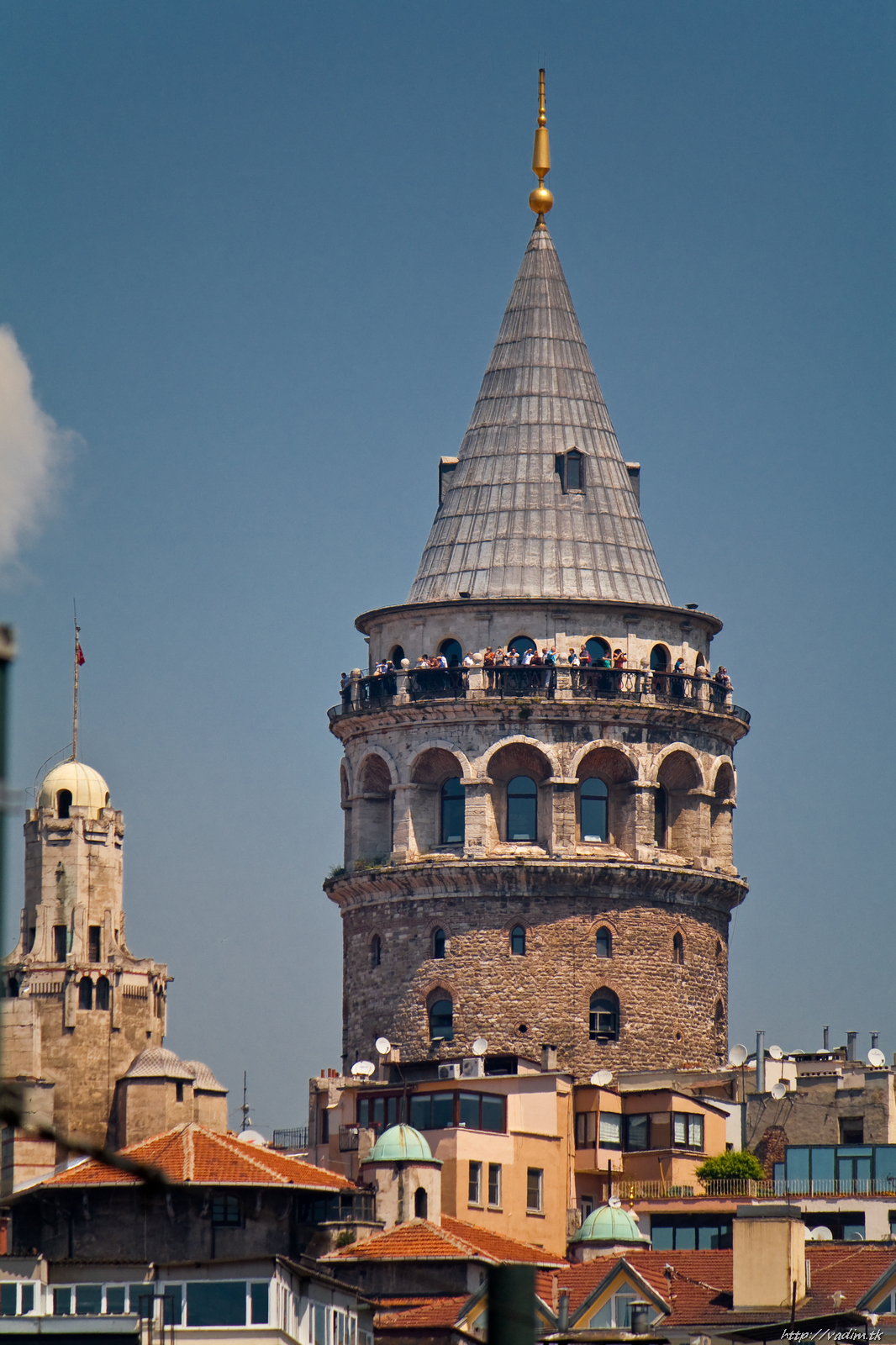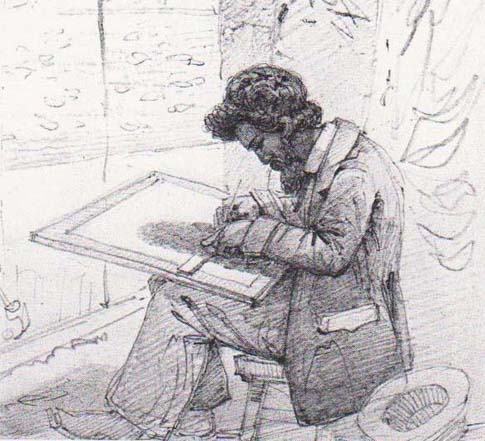|
Ottoman Bank
The Ottoman Bank (), known from 1863 to 1925 as the Imperial Ottoman Bank (, ) and correspondingly referred to by its French acronym BIO, was a bank that played a major role in the financial history of the Ottoman Empire. By the early 20th century, it was the dominant bank in the Ottoman Empire, and one of the largest in the world. It was founded in 1856 as a British institution chartered in London, and reorganized in 1863 as a French–British venture with head office in Constantinople, on a principle of strict equality between British and French stakeholders. It soon became dominated by French interests, however, primarily because of the greater success of its offerings among French savers than British ones. In its early years, the BIO was principally a lender to the Ottoman government with a monopoly on banknote issuance and other public-interest roles, including all treasury operations of the Ottoman state under an agreement ratified in February 1875 that was however never f ... [...More Info...] [...Related Items...] OR: [Wikipedia] [Google] [Baidu] [Amazon] |
Ottoman Empire
The Ottoman Empire (), also called the Turkish Empire, was an empire, imperial realm that controlled much of Southeast Europe, West Asia, and North Africa from the 14th to early 20th centuries; it also controlled parts of southeastern Central Europe, between the early 16th and early 18th centuries. The empire emerged from a Anatolian beyliks, ''beylik'', or principality, founded in northwestern Anatolia in by the Turkoman (ethnonym), Turkoman tribal leader Osman I. His successors Ottoman wars in Europe, conquered much of Anatolia and expanded into the Balkans by the mid-14th century, transforming their petty kingdom into a transcontinental empire. The Ottomans ended the Byzantine Empire with the Fall of Constantinople, conquest of Constantinople in 1453 by Mehmed II. With its capital at History of Istanbul#Ottoman Empire, Constantinople (modern-day Istanbul) and control over a significant portion of the Mediterranean Basin, the Ottoman Empire was at the centre of interacti ... [...More Info...] [...Related Items...] OR: [Wikipedia] [Google] [Baidu] [Amazon] |
Ottoman Banks Archives And Research Centre
Ottoman may refer to: * Osman I, historically known in English as "Ottoman I", founder of the Ottoman Empire * Osman II, historically known in English as "Ottoman II" * Ottoman Empire 1299–1922 ** Ottoman dynasty, ruling family of the Ottoman Empire *** Osmanoğlu family, modern members of the family * Ottoman Caliphate 1517–1924 * Ottoman Turks, a Turkic ethnic group * Ottoman architecture * Ottoman bed, a type of storage bed * Ottoman (furniture), padded stool or footstool * Ottoman (textile), fabric with a pronounced ribbed or corded effect, often made of silk or a mixture See also * Ottoman Turkish (other) * Osman (other) * Usman (other) * Uthman (name), the male Arabic given name from which the name and word Ottoman is derived from * Otto Mann, a character in ''The Simpsons'' {{disambiguation ... [...More Info...] [...Related Items...] OR: [Wikipedia] [Google] [Baidu] [Amazon] |
Turkish Levantine
Levantines in Turkey or Turkish Levantines, are the descendants of Europeans who settled in the coastal cities of the Ottoman Empire to trade, especially after the Tanzimat era. Their estimated population today is around 1,000.Levanten kültürü turizme açılıyor haberler.com (12.08.2013) They mainly reside in Istanbul, İzmir and Mersin. Anatolian Muslims called Levantines ''Frenk'' (variation of ''Farang'', often translated as "Frank") and ''tatlısu Frengi'' ( 'freshwater Frank'; due to their high-standard lifestyle) in addition to ''Levanten''. Turkish Levantines are mostly Latin Catholics. Over time the term Levant was widened in scope. During the era of the Byzantine Empire, Byzantines and the first years of the Ottoman Empire, Ottomans, the term was used to refer to We ... [...More Info...] [...Related Items...] OR: [Wikipedia] [Google] [Baidu] [Amazon] |
Édouard Thouvenel
Édouard is both a French given name and a surname, equivalent to Edward in English. Notable people with the name include: * Édouard Balladur (born 1929), French politician * Édouard Boubat (1923–1999), French photographer * Édouard Colonne (1838–1910), French conductor * Édouard Daladier (1884–1970), French prime minister at the start of World War II * Edouard Drumont (1844–1917), French anti-semitic journalist * Édouard Dujardin (1861–1949), French writer * Édouard François (born 1957), French architect * Édouard Gagnon (1918–2007), French Canadian cardinal * Édouard Herriot (1872–1957), French prime minister, three times, and mayor of Lyon from 1905 to 1957 * Edouard F. Henriques, Make-up artist * Édouard von Jaunez (1834–1916), German-French politician and industrialist * Édouard Lalo (1823–1892), French composer * Édouard Lockroy (1838–1913), French politician * Édouard Louis (born 1992), French writer * Édouard Lucas (1842–1891 ... [...More Info...] [...Related Items...] OR: [Wikipedia] [Google] [Baidu] [Amazon] |
Stratford Canning, 1st Viscount Stratford De Redcliffe
Stratford Canning, 1st Viscount Stratford de Redcliffe (4 November 1786 – 14 August 1880), was a British diplomat who became best known as the longtime British Ambassador to the Ottoman Empire. A cousin of George Canning, he served as Envoy Extraordinary and Minister-Plenipotentiary to the United States between 1820 and 1824 and held his first appointment as Ambassador to the Ottoman Empire between 1825 and 1828. He intermittently represented several constituencies in parliament between 1828 and 1842. In 1841 he was re-appointed as Ambassador to the Ottoman Empire, serving in the position from January 1842 to 1858. In 1852 he was elevated to the peerage as Viscount Stratford de Redcliffe. Canning's hopes of high political office were repeatedly dashed. Background and education Canning was the youngest of the five children of Stratford Canning (1744–1787), an Irish-born merchant based in London, by his wife Mehitabel, daughter of Robert Patrick. He was born at his father's ... [...More Info...] [...Related Items...] OR: [Wikipedia] [Google] [Baidu] [Amazon] |
George Villiers, 4th Earl Of Clarendon
George William Frederick Villiers, 4th Earl of Clarendon (12 January 180027 June 1870) was an English diplomat and statesman from the Villiers family. He served a succession of Whig and Liberal administrations. This included as Viceroy in famine-stricken Ireland and, on the first of three occasions as Foreign Secretary, as the United Kingdom's chief representative at the Congress of Paris which ended the Crimean War. Background and education Villiers was born in London to Hon. George Villiers and Hon. Theresa Parker, daughter of John Parker, 1st Baron Boringdon. He was the second born, but first surviving, of their 10 children. His father was the third son of Thomas Villiers, 1st Earl of Clarendon (himself the second son of William Villiers, 2nd Earl of Jersey). After the death of his father in 1827, George became heir to the earldom, succeeding his uncle Thomas Villiers, 2nd Earl of Clarendon (1753–1824), who died unmarried; and his uncle John Villiers, 3rd Earl of ... [...More Info...] [...Related Items...] OR: [Wikipedia] [Google] [Baidu] [Amazon] |
Pereire Brothers
Émile Pereire (3 December 1800, Bordeaux - 5 January 1875, Paris) and his brother Isaac Pereire (25 November 1806, Bordeaux – 12 July 1880, Gretz-Armainvilliers) were major figures in the development of France's finance and infrastructure during the Second French Empire. The Pereire brothers challenged the dominance of the Rothschilds in continental European finance, known at the time as ''haute finance''. Their attempt was temporarily successful, and even though it collapsed in the late 1860s, it contributed to a more developed and vibrant economic landscape. Like the Rothschilds, the Pereires were Jews, but unlike them, they were Sephardi of Portuguese origin. Family The brothers' grandfather was Jacob Rodrigues Pereira, one of the inventors of sign language for the deaf, who was born in Spain and established himself in France in 1741, where he became an interpreter for King Louis XV. Jacob Rodrigues Pereire (as he went by in French) married Miriam Lopès Dias, a Sephardic ... [...More Info...] [...Related Items...] OR: [Wikipedia] [Google] [Baidu] [Amazon] |
Rothschild Family
The Rothschild family ( , ) is a wealthy Ashkenazi Jews, Ashkenazi Jewish noble banking family originally from Frankfurt. The family's documented history starts in 16th-century Frankfurt; its name is derived from the family house, Rothschild, built by Isaak Elchanan Bacharach in Frankfurt in 1567. The family rose to prominence with Mayer Amschel Rothschild (1744–1812), a Court Jew, court factor to the German Landgraviate of Hesse-Kassel, Landgraves of Hesse-Kassel in the Free City of Frankfurt, Holy Roman Empire, who established his banking business in the 1760s. Unlike most previous court factors, Rothschild managed to bequeath his wealth and established an international List of banking families, banking family through his five sons, who established businesses in Paris, Frankfurt, London, Vienna, and Naples. The family was elevated to nobility, noble rank in the Holy Roman Empire and the United Kingdom. The only subsisting branches of the family are the French and British one ... [...More Info...] [...Related Items...] OR: [Wikipedia] [Google] [Baidu] [Amazon] |
Abdulmejid I
ʻAbd al-Majīd (ALA-LC romanization of , ), also spelled as Abd ul Majid, Abd ul-Majid, Abd ol Majid, Abd ol-Majid, and Abdolmajid, is a Muslim male given name and, in modern usage, surname. It is built from the Arabic words '' ʻabd'' and ''al-Majīd'', one of the names of God in the Qur'an, which give rise to the Muslim theophoric names. It means "servant of the All-glorious". It is rendered in Turkish as ''Abdülmecid''. There is a distinct but closely related name, ʻAbd al-Mājid (), with a similar meaning, formed on the Qur'anic name ''al-Mājid''. Some of the names below are instance of the latter one. 'Abd al-Majid may refer to: Males Given name * 'Abd al-Majid Nimer Zaghmout (died 2000), Palestinian imprisoned in Syria * Abdelmadjid Mada (born 1953), Algerian runner * Abdelmadjid Tahraoui (born 1981), Algerian footballer * Abdelmadjid Tebboune (born 1945), President of Algeria * Abdelmajid Benjelloun (1919–1981), Moroccan novelist, journalist and ambassador * Abdel ... [...More Info...] [...Related Items...] OR: [Wikipedia] [Google] [Baidu] [Amazon] |
Mehmed Fuad
Mehmed or Mehmet is the most common Turkish form of the Arabic male name Muhammad () (''Muhammed'' and ''Muhammet'' are also used, though considerably less) and gains its significance from being the name of Muhammad, the prophet of Islam. Originally the intermediary vowels in the Arabic ''Muhammad'' were completed with an ''e'' in adaptation to Turkish phonotactics, which spelled Mehemmed, Mehemed and the name lost the central ''e'' over time. Final devoicing of ''d'' to ''t'' is a regular process in Turkish. The prophet himself is referred to in Turkish using the archaic version, ''Muhammed''. In Azerbaijani it is ''Məhəmməd''. The name Mehmet also often appears in derived compound names. The name is also prevalent in former Ottoman territories, particularly among Balkan Muslims in Albania, Bosnia and Kosovo. The name is also commonly used in Turkish culture in the form of Mehmetçik, meaning ''little Mehmet'', for unranked soldiers. Given name Mehmed *Mehmed I (1382� ... [...More Info...] [...Related Items...] OR: [Wikipedia] [Google] [Baidu] [Amazon] |
Austen Henry Layard
Sir Austen Henry Layard (; 5 March 18175 July 1894) was an English Assyriologist, traveller, cuneiformist, art historian, draughtsman, collector, politician and diplomat. He was born to a mostly English family in Paris and largely raised in Italy. He is best known as the excavator of Nimrud and of Nineveh, where he uncovered a large proportion of the Assyrian palace reliefs known, and in 1851 the library of Ashurbanipal. Most of his finds are now in the British Museum. He made a large amount of money from his best-selling accounts of his excavations. He had a political career between 1852, when he was elected as a Member of Parliament, and 1869, holding various junior ministerial positions. He was then made ambassador to Madrid, then Constantinople, living much of the time in a palazzo he bought in Venice. During this period he built up a significant collection of paintings, which due to a legal loophole he had as a diplomat, he was able to extricate from Venice and bequea ... [...More Info...] [...Related Items...] OR: [Wikipedia] [Google] [Baidu] [Amazon] |






